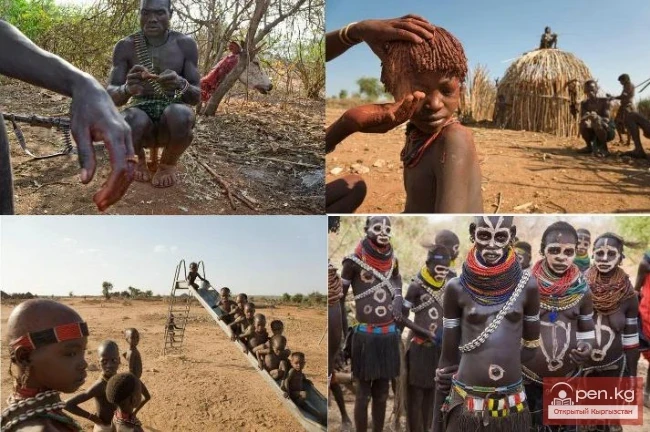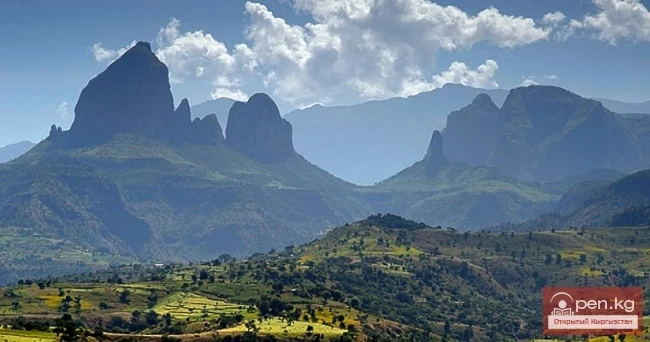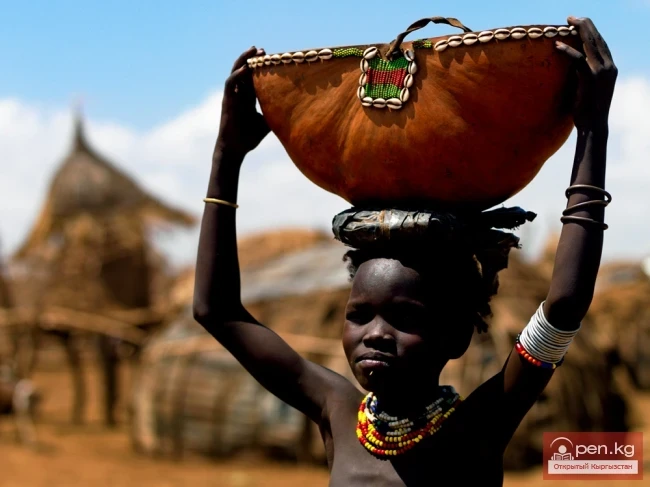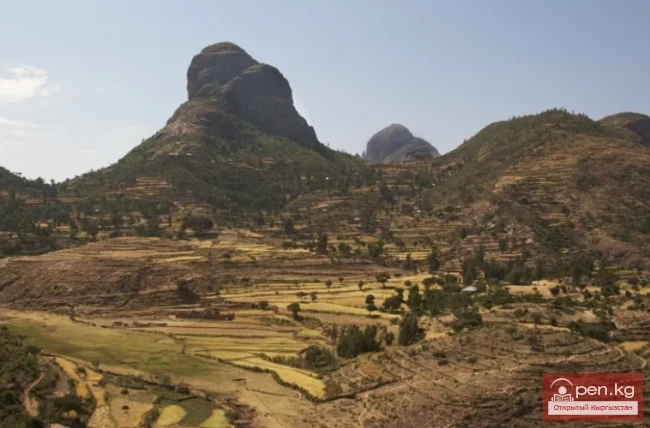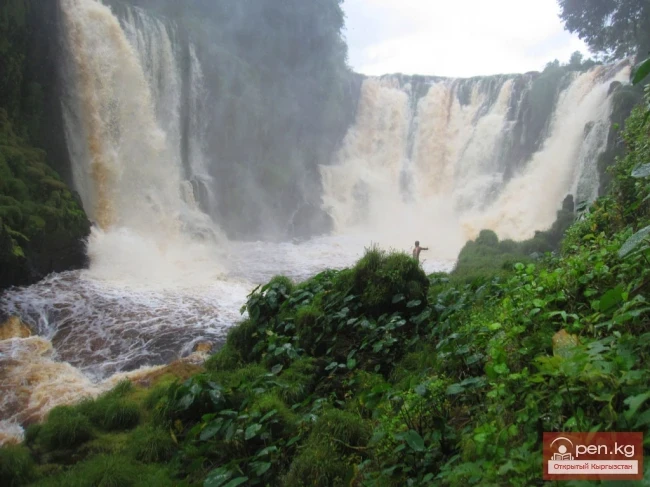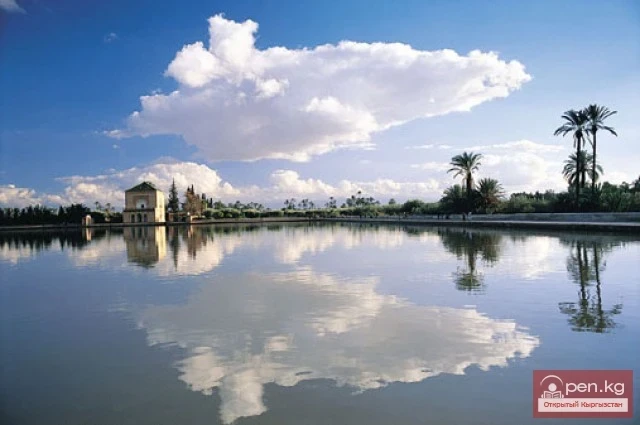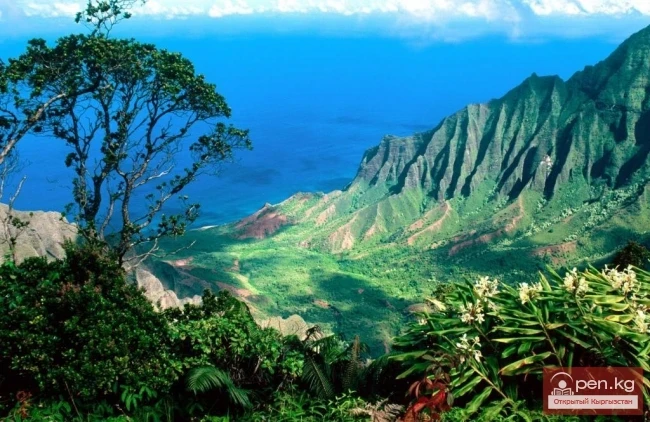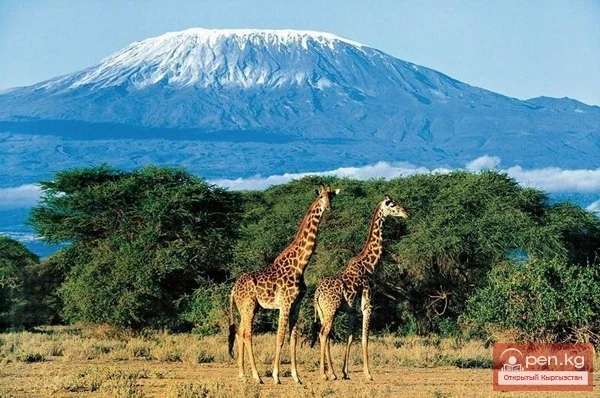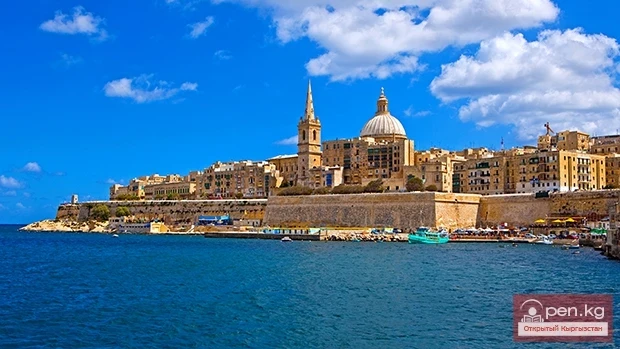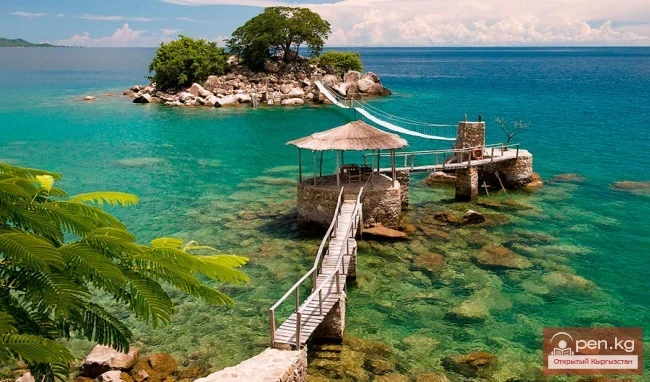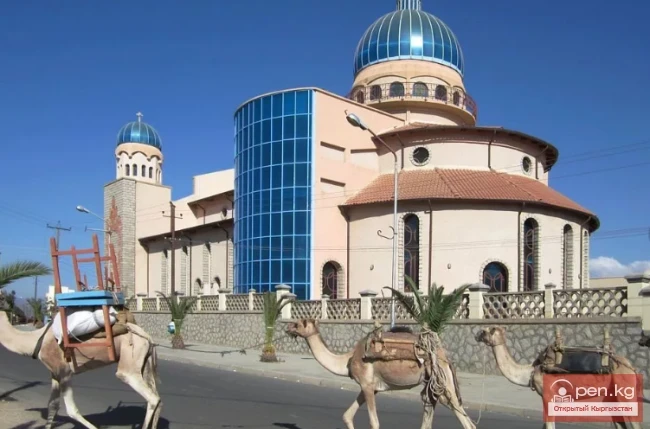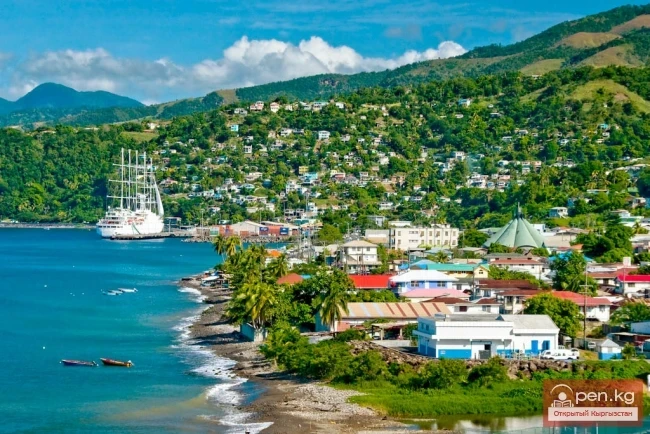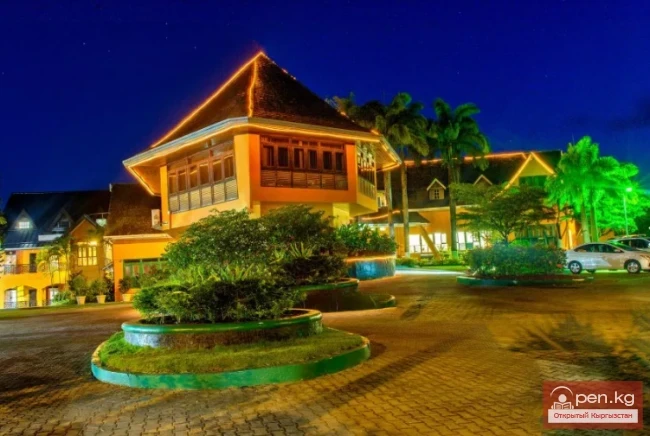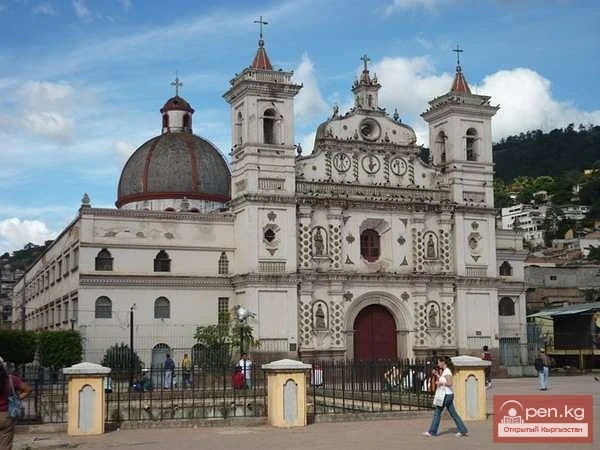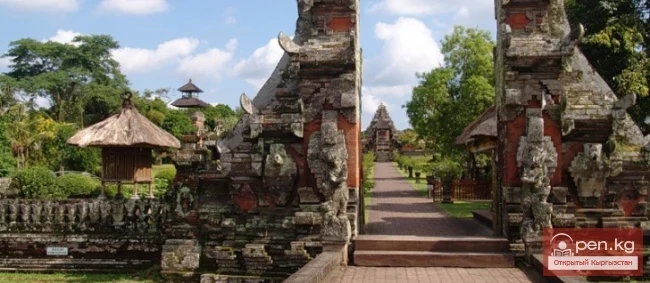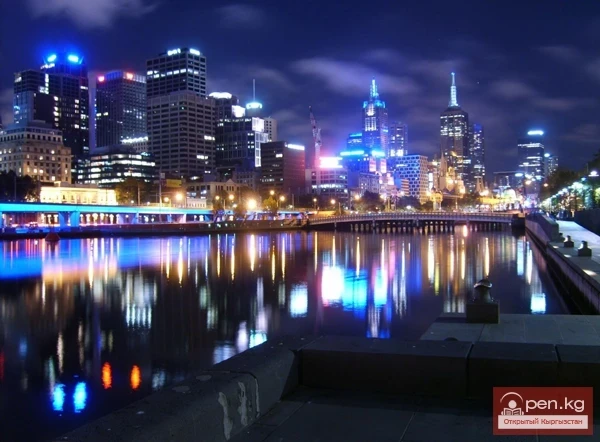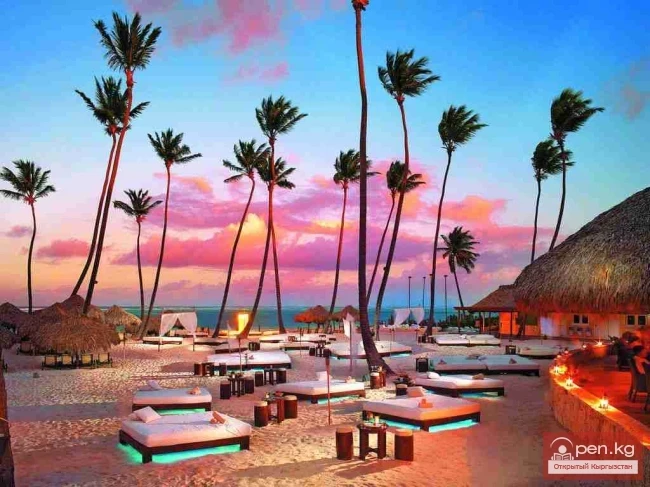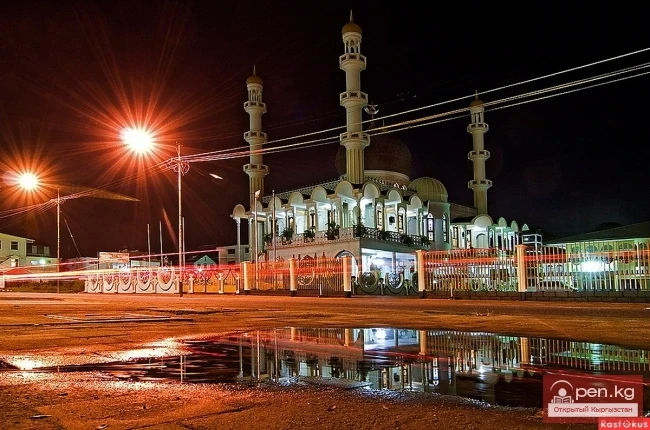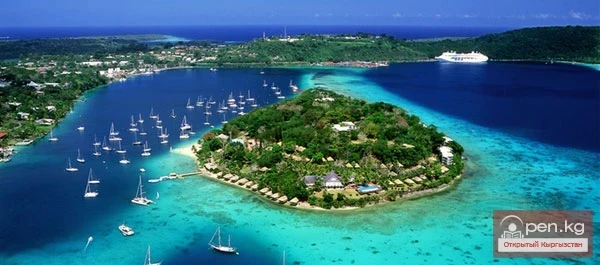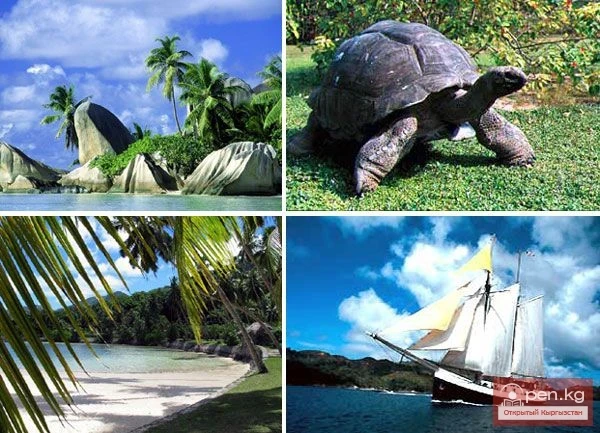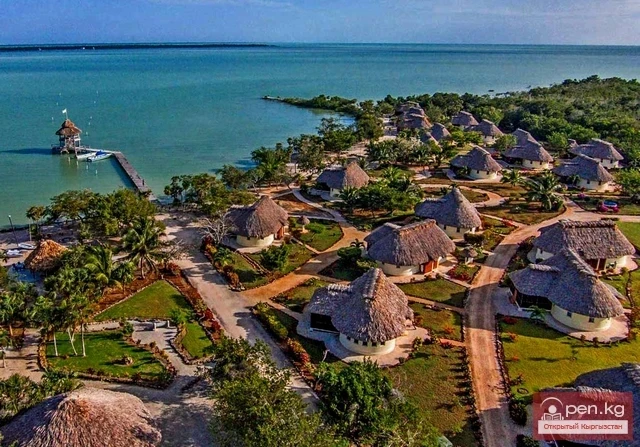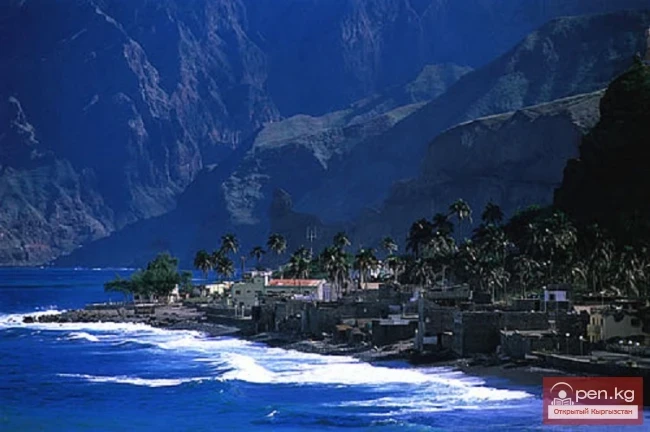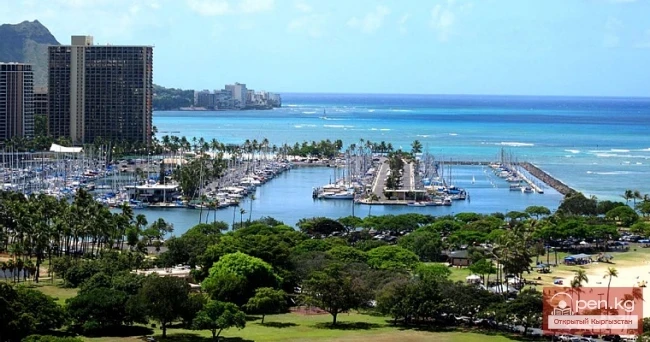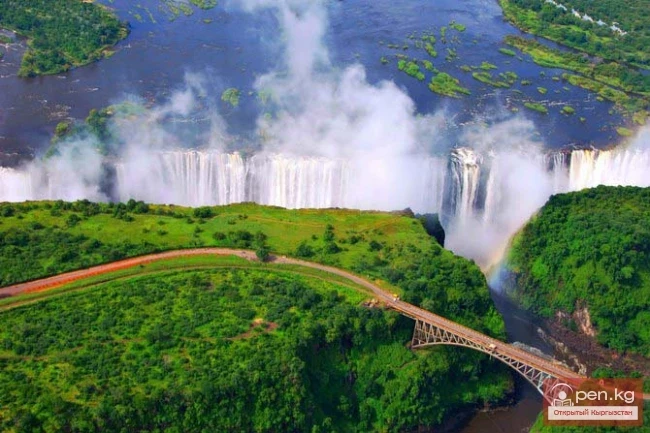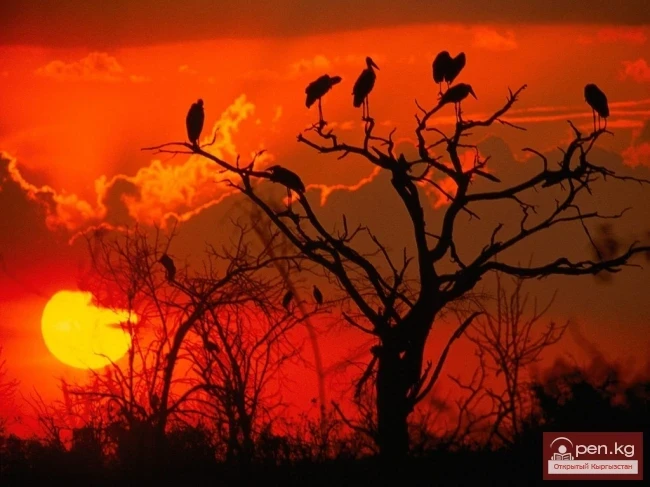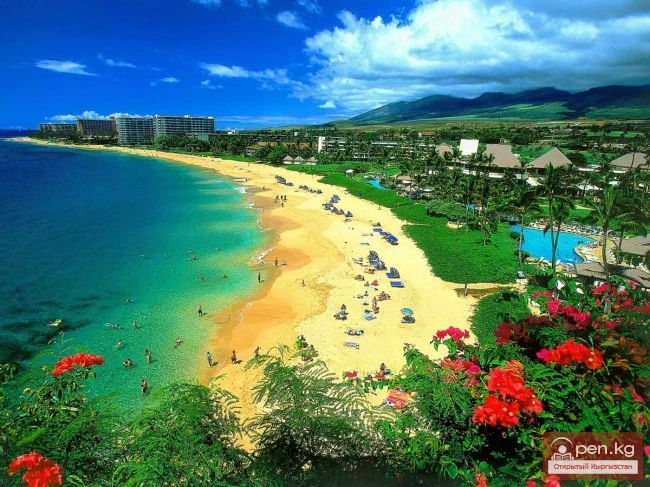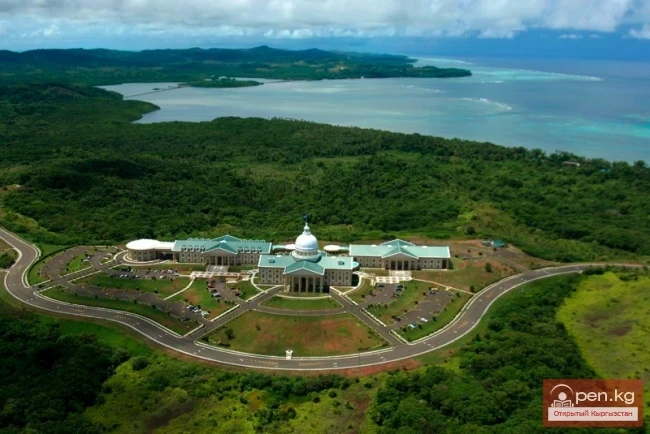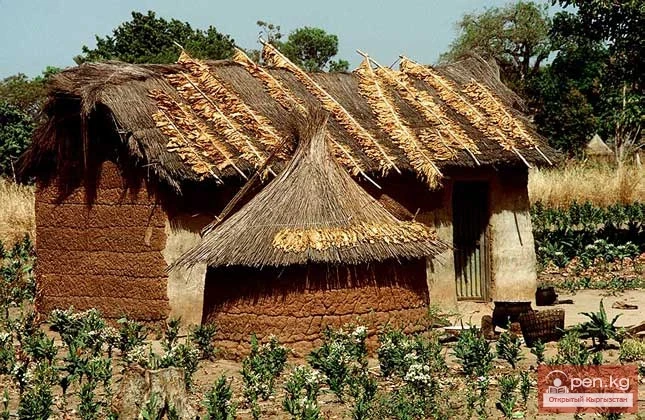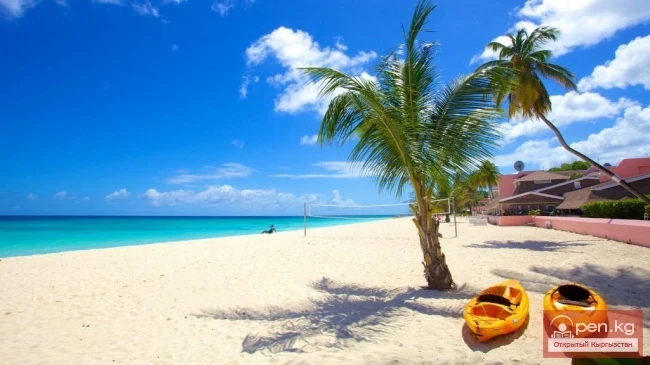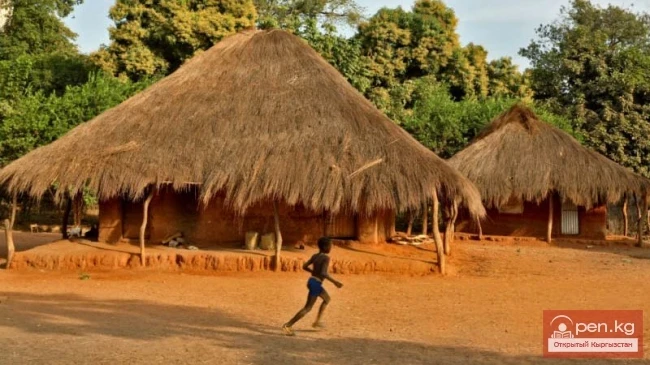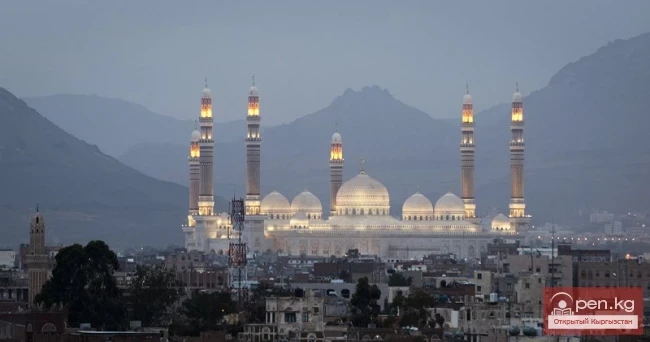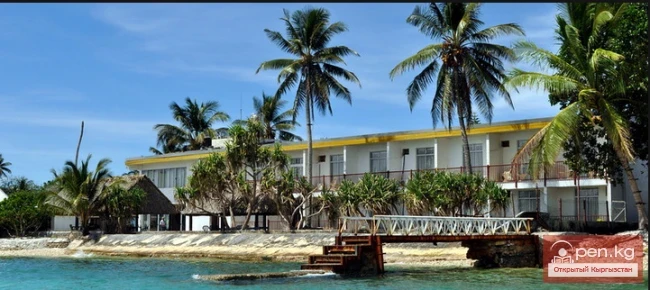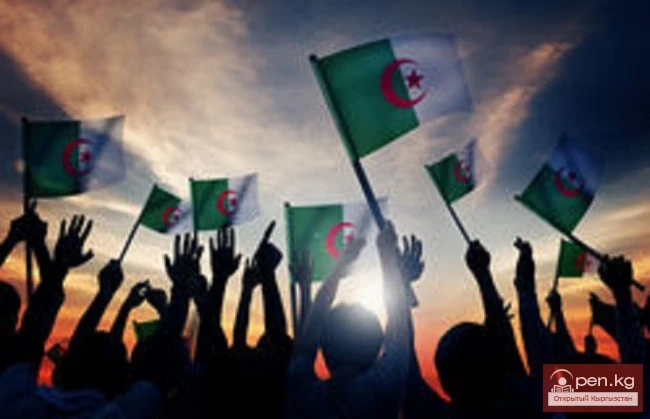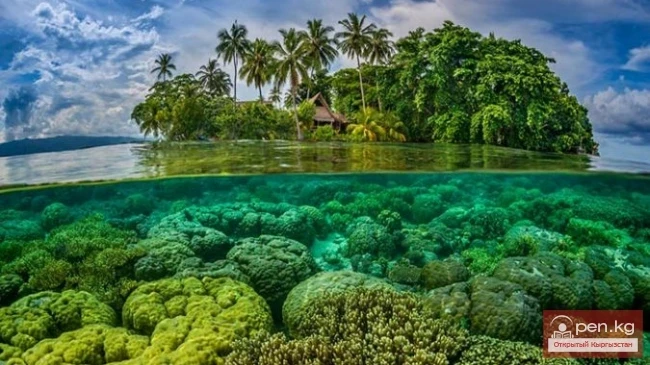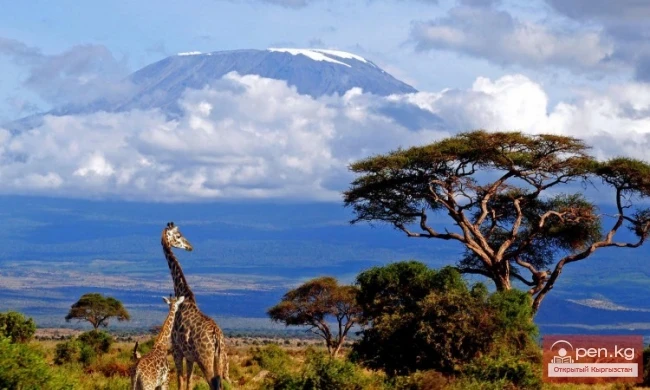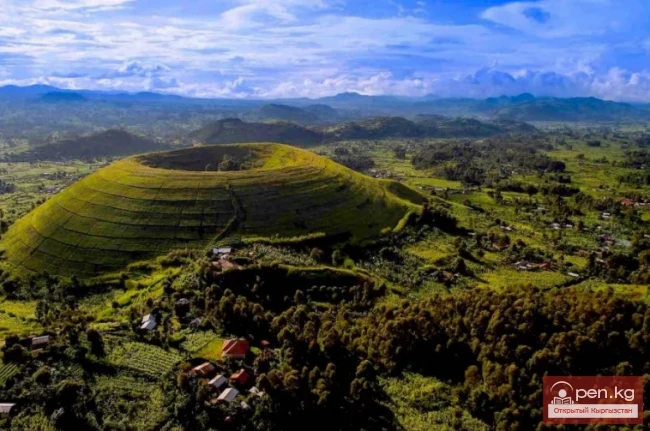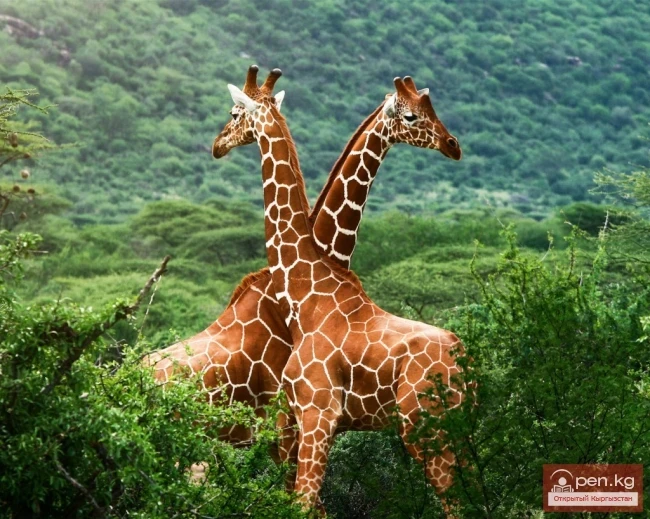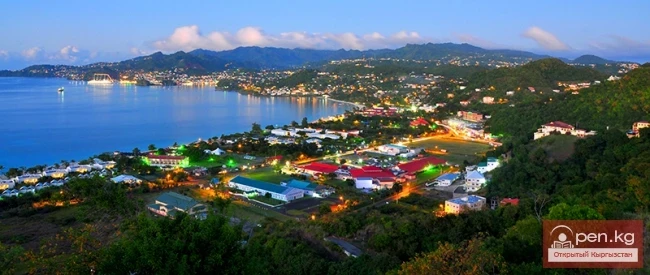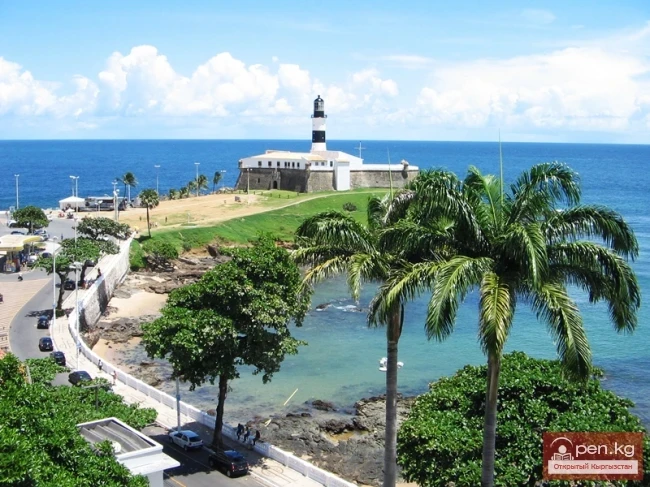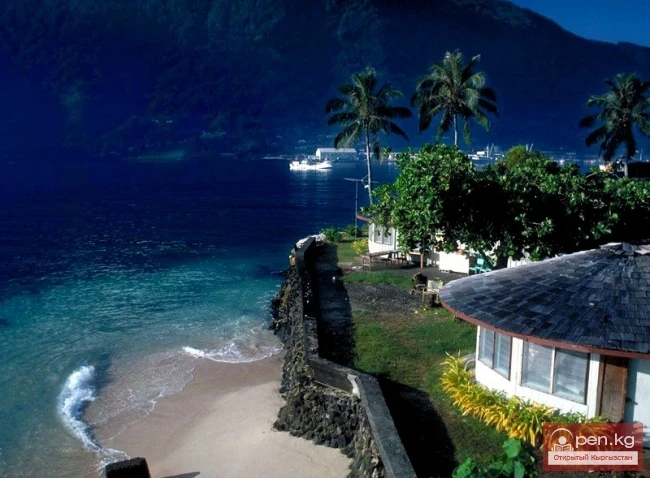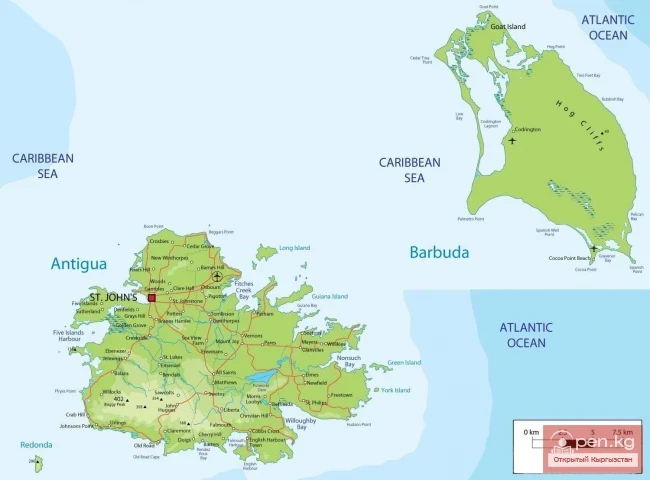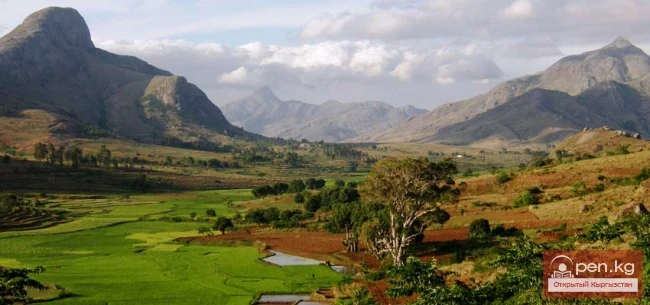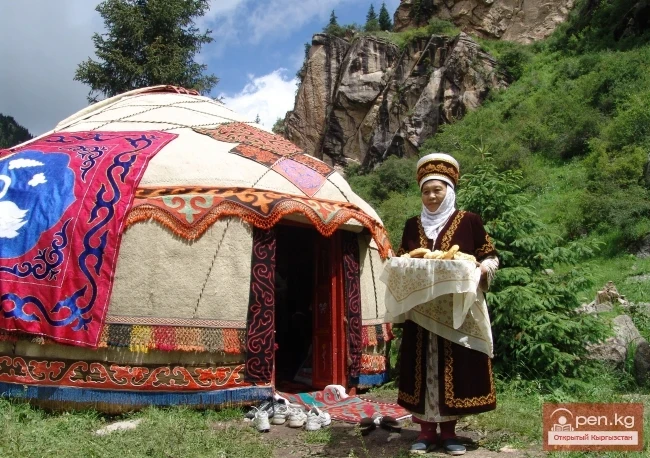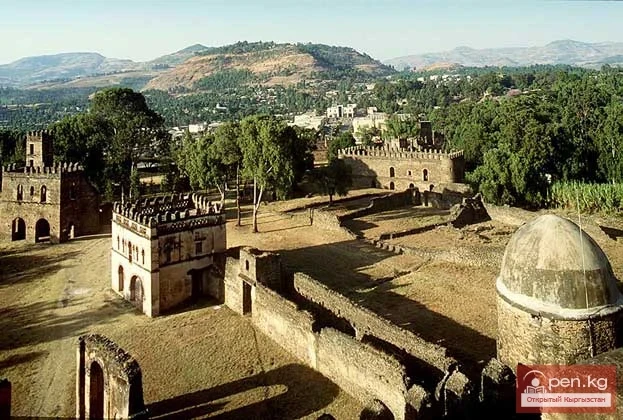
The Federal Democratic Republic of Ethiopia is a country in Northeast Africa. Area - 1,096,000 km². Capital - Addis Ababa (3 million). Administrative division - 9 states. Population - 72 million (2004): Oromo, Amhara, Tigrayans, Gurage, Somalis, Afars, and others (over 100 nationalities and ethnic groups in total). The Amharic language is used as a means of interethnic communication and as the working language in government institutions. Religion: approximately 45% of the population practices Christianity, around 50% Islam, and the rest adhere to traditional beliefs. Currency - birr = 100 cents.
National holiday - May 28 (on May 28, 1991, the Ethiopian People's Revolutionary Democratic Front - EPRDF came to power).
Ethiopia is a republic. The head of state is the president (since 2001 - Girma Wolde-Giorgis Lema), elected by parliament for a term of 5 years, endowed with representative functions. The parliament - the Federal Assembly - is bicameral, elected for a term of 5 years. Legislative power belongs to the lower house of parliament - the House of Peoples' Representatives (548 deputies elected in multi-party elections in 2005). The upper house - the House of Federation (155 deputies, elected in 2005 by local authorities). The Prime Minister is elected by parliament, which approves the composition of the government.
At the beginning of our era, a large slave-owning state, Aksum, was formed in the territory of Northern Ethiopia. The Ethiopian feudal state that emerged on its basis in the 13th-14th centuries was later fragmented into independent principalities. In the mid-19th century, the reunification of Ethiopian lands began, which contributed to the resistance against the expansion of Western European powers during the colonial "scramble" for Africa. In 1895, Italy unleashed an aggressive war against Ethiopia, but in the Battle of Adwa in 1896, it suffered defeat and was forced to recognize its independence. In 1930, the first constitution was adopted in the country, a parliament with advisory functions was created, slavery was abolished, and other reforms were implemented, although they did not affect the foundations of the feudal-monarchical system. In 1935, Ethiopia was again attacked by Italy, which occupied the country, incorporating it into its colony of Italian East Africa. The USSR consistently defended Ethiopia in the League of Nations, seeking to impose sanctions against the Italian fascist aggressors. A partisan movement unfolded in the country, leading to liberation in 1941.
Under the imperial regime, Ethiopia was an extremely backward country with an archaic feudal-serf system. In February 1974, an anti-monarchist, anti-feudal revolution began in the country, led by the armed forces. On September 12, 1974, Emperor Haile Selassie I was deposed, the parliament and cabinet were dissolved, and the 1955 constitution was suspended. Power passed to the Provisional Military Administrative Council (PMAC) and the Provisional Military Government. The chairman of the PMAC and the Provisional Military Government of Ethiopia, and later the president of the country (February 1977 - May 1991), was Mengistu Haile Mariam.
The escalation of internal armed conflict in the last years of his rule led to the military defeat of the existing regime. In May 1991, power in the country passed to the Ethiopian People's Revolutionary Democratic Front (EPRDF) - an organization formed around the most powerful and influential ethnopolitical group, the Tigray People's Liberation Front (TPLF). The TPLF's ally, the Eritrean People's Liberation Front (EPLF), established its control over the territory of Eritrea.
In July of the same year, the EPRDF organized a Conference on the Transition to Peace and Democracy in Ethiopia in Addis Ababa, which adopted two final documents - the Charter of the Transitional Period and the Declaration on Eritrea (in accordance with the Declaration of April 23, 1993, a referendum was held in Eritrea, which had been federated with Ethiopia since 1952; 99.8% of the participants voted for independence; it was proclaimed on May 24, 1993).
The highest body of state power became the Transitional Government of Ethiopia (TGE). The General Secretary of the EPRDF, Meles Zenawi, was elected president of the TGE (and consequently president of the country) on July 22, 1993.
In December 1994, the Constitutional Assembly adopted a new fundamental law of the country, which came into effect on August 21, 1995. According to the constitution, a parliamentary form of republican government was established in Ethiopia. In May 2005, the country held regular elections for federal and regional authorities. The ruling party - the EPRDF - won the majority of seats in parliament.
In October 2005, the Ethiopian parliament re-elected Meles Zenawi as Prime Minister.
In May 1998, due to a border dispute between Eritrea and Ethiopia, conflict erupted again, leading to casualties and destabilization in the subregion. The UN Security Council called for an end to the conflict and offered assistance in resolving relations. In May 2000, the UN Security Council imposed a military embargo on both countries for a period of 1 year, which was repeatedly extended. On June 18, 2000, an agreement to cease hostilities was signed in Algiers. In July, the UN Mission in Ethiopia and Eritrea (UNMEE) was established, and from September 2000, a UN peacekeeping contingent was deployed in a temporary security zone 25 km wide (along the Ethiopian-Eritrean border). On December 12, 2000, in Algiers, with the mediation of the UAE, Algeria, the USA, and the European Union, the Ethiopian-Eritrean peace agreement was signed, and a number of commissions were formed, including for the delimitation and demarcation of the state border. Despite international mediation, tensions remain in relations between the two countries.
Ethiopia has been a member of the UN since 1945 and of the African Union since 1963 (and of the African Continental Free Trade Area since 2002). The country's territory is prone to drought. Combined with low agricultural efficiency, this periodically leads to hunger problems that the country can only resolve by receiving emergency food aid from the global community.
In December 1991, a new economic policy program for the transitional period was adopted, aimed at creating more favorable conditions for the development of private entrepreneurship in agriculture and leading industries. However, the country's economy has not yet overcome numerous difficulties, which were exacerbated in 1998 due to the armed conflict on the Ethiopian-Eritrean border.
Agriculture accounts for 49% of GDP and about 90% of foreign exchange earnings. Major crops include grains (about 7 million tons), coffee (the main export product), oilseeds, and legumes; 90% of production is in the individual sector. Ethiopia is an agrarian country and is among the least economically developed countries in the world. About 85% of the self-employed population is engaged in agriculture. Ethiopia is considered the birthplace of the beloved coffee. Until the 14th century, coffee grew wild in Ethiopia, and only in the 16th century was the coffee tree introduced to the Arabian Peninsula, from where coffee spread widely throughout Europe. Today, almost every home has a coffee maker http://allo.ua/ru/products/kofevarki/tip_kofevarki-jespresso/ and the aroma of this wonderful invigorating drink can be felt.
Cattle are raised (over 30 million heads, the first place in Africa). The industry is poorly developed, contributing less than 10% of GDP. Of nearly 800 enterprises, about 250 are profitable. Leading sectors include food, textile, and leather-footwear. The share of the public sector in industrial production is about 65%.
There are significant reserves of hydroelectric resources (up to 50 billion kWh). The largest hydroelectric power station in the country is "Gibe III" (184 MW). About 1 billion kWh of electricity is produced annually.
Mineral resource reserves are poorly studied; deposits of tantalum (about 60,000 tons), natural gas (70 billion m³), and gold (190 tons) have been discovered. Gold, platinum, manganese ore, potassium salt, and quartz sand are mined.
There are paved highways - about 14,000 km; an international airport; a railway (1,088 km) from Addis Ababa to Djibouti (the capital of the Republic of Djibouti and a port in the Gulf of Aden serving Ethiopia's foreign trade operations).
Foreign trade turnover in 2004 - 3,050 million dollars (exports - 980 million, imports - 2,070 million). 70% of the country's foreign exchange earnings come from coffee sales, 11.5% from raw hides. Imports include oil, petroleum products, food, machinery and equipment, and consumer goods. Major trading partners: EU countries, USA, Japan.
The country's external debt is 1.14 billion dollars (2005).
The share of the conditionally literate population increased from 7% to 70% since 1974. There are about 10,000 schools (mostly primary), 10 higher education institutions, including 2 universities.
About 50 newspapers of various orientations are published. The largest are "Addis Zemen" (in Amharic, over 40,000 copies) and "Ethiopian Herald" (in English, about 40,000). There is a government Ethiopian News Agency (ENA).
Radio broadcasting covers almost the entire territory of the country. The only television center is in the capital. Television broadcasting is limited by the underdevelopment of retransmission infrastructure and covers only major administrative centers.
